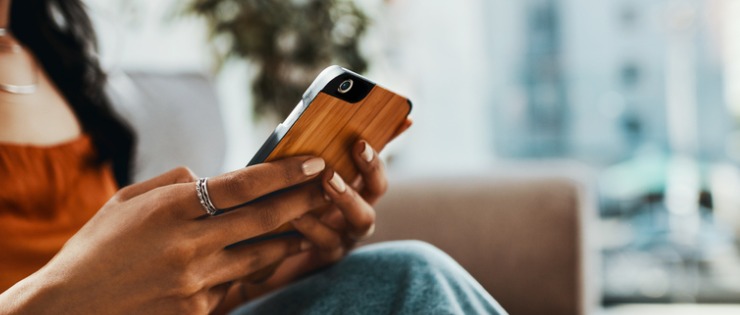
We often hear about kids spending too much time on their devices and the risks involved, but what about adults? Social media is far-reaching with more than half of the world now actively on social media. According to Yellow’s Annual Social Media Report, in 2019 internet usage among Australians increased, with 56% of people going online 10 times per day and 27% of people exceeded that and accessed social media more than 20 times a day. One in three people felt excited when their post received more likes than usual and fifteen percent of respondents felt anxious when they couldn't check social media. So when is it time for a social media hiatus?
What is a Digital Detox?
A digital detox is a period when a person doesn’t use devices such as their smartphone, social media, computer or tablet. A person may decide to detox from one form of technology or all. Many feel their device use has become excessive, it’s creating stress or they’re missing out on real-life experiences. A social media hiatus allows them to spend time on other activities and possibly improve their physical or mental health.
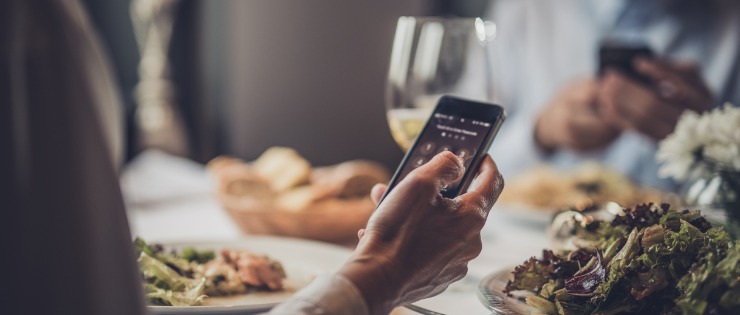
Advantages and Disadvantages of Social Media
There’s no doubt social media is a double-edged sword. Social media provides many people with benefits they may not gain elsewhere, but for others there are only downsides.
Build Communities and Reduce Loneliness
Social media can help bring local communities together to build new relationships. Residents can join a suburban page for details of local events and to meet those living in the area. This has created a new meaning for the word “community” which is no longer confined by our geography, as we can connect in a worldwide group of people who have a shared interest.
As we know, in 2020, many Australians couldn’t catch up with friends and family in person so they used social media to keep in contact. People could see what their contacts were doing to fill in time during lockdown. They could add a comment and keep the lines of communication open.
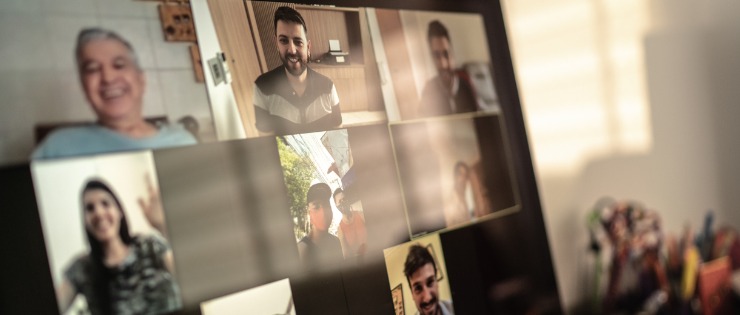
People used social media to gather information, express their emotions, ask questions and gain feedback without leaving their home. It helped people realise that the pandemic was impacting everyone from royalty to ordinary citizens unable to work, travel and spend time with friends and family. Many considered how different the pandemic experience might have been 15 years earlier without today’s social media and communication options.
Social media sites provided a platform for friends to catch up virtually instead of their usual in person contact. Friends used video conferencing app, Houseparty, which saw an increase of 50 million sign-ups worldwide during April and colleagues held Zoom meetings.
Free Entertainment
Another advantage of social media sites is the free entertainment it provides. When the budget is tight, people can stay in to check out their socials and read emails to fill in idle time.
Source of News and Information
Social sites are a useful source of information. If you want to know how to unblock your drain or the best bread recipe, you can consult YouTube. Many of us get our news updates from social media or look to social media influencers to guide us on what’s trending.
Unrealistic Expectations
Social media might be great for some but it’s a curse for others. Social media can make some users feel inferior when they compare themselves to others. They can’t appreciate that what they’re seeing is just the highlight reel of other people’s lives. They believe the rose-coloured glasses glimpse is the reality of a person’s life, when of course there are unflattering and real issues that don’t make it onto their social media. Some struggle to appreciate that social media effectively filters out the parts of life we don’t want others to see.
Cyberbullying and Intimidation
Some people use social media sites to inflict cyber abuse where they threaten, intimidate, harass or humiliate a person. Before social media, there wasn’t the ability to humiliate and shame a person in such a public forum. Victims can feel embarrassment and regret for years after an intimate photo or video circulates on social sites. It can lead to depression, self-harm and suicide. Governments worldwide are trying to stamp out cyberbullying and online harassment by demanding social media sites remove harmful material.
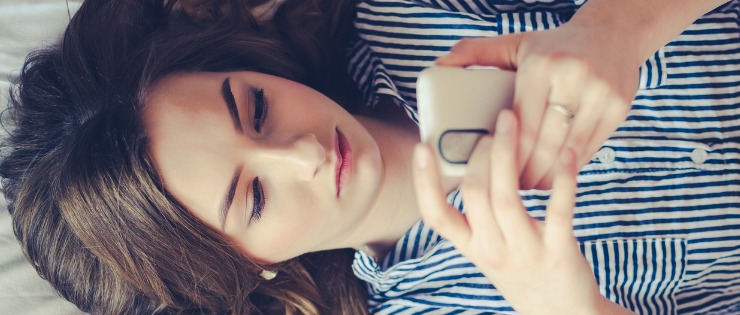
It’s easy for a reader to misinterpret a comment or tone on social media as being nasty, even when it wasn’t the writer’s intention. The comment can play on their mind for days, making them feel hurt, anxious or depressed.
Time spent on social media can affect relationships. Beyond Blue reported 43% of Australians who are in a relationship believe their partner uses their phone too much.
What the Research Tells Us About Social Use
Researchers are keen to find out what impact (good, bad or indifferent) social media is having on the physical and mental health of users and whether the advantages of social media outweigh the disadvantages.
Many US studies show increased social media consumption leads to negative online experiences, fewer in-person social interactions, and decreased ability to sustain attention.
One study found reducing social media use to 30 minutes per day resulted in a significant reduction in levels of anxiety, depression, loneliness, sleep problems, and fear of missing out.
FAQs About a Social Media Hiatus
How long should I take a social media break for?
The length of a social media detox is different for everyone. There are apps available that help you take a break from social media if you’re finding it hard to self-regulate. You can set time limits on when you can use social media and decide which sites to block. Other apps allow you to track your social media time and control the time spent on them.
I don’t want to delete it but how can I cut back on social media?
Many people don’t want to cut themselves off from social media but want to reduce their use. One way is to decide to have one or more social media free days in the week where you concentrate on real-life relationships rather than virtual ones, and have more time for productive activities.

Turn Off Your Notifications
Notifications are designed to cause FOMO. When you receive a notification there’s the temptation to check it. So turning off notifications can help with spending less time on social media.
Choose Areas of Your Home to Make Social Media Free
The bedroom is a good place to start as the light from devices before bed can make sleeping more difficult. Some families declare the dining table a social media-free zone.
Delete The App
If you usually access social media on your phone, try deleting the app. You can still visit a social media site on your laptop or use your partner’s phone. Making access more difficult for yourself means less time spent on social media.
Is it good to have a break from social media?
Yes, many people experience benefits when having a break from social media. Even if you’re unsure if you will benefit, it makes sense to give it a go.
What can taking a break from social media do?
A break from social media allows you to compare any physical or mental differences when you are and aren’t using it.
Possible Physical Benefits of Turning Off Social Media
There are also physical advantages for heavy users when they turn off social media. Tech neck is experienced by people who spend hours a day hunched over their devices, placing a strain on the neck and shoulders. Repetitive strain injuries can impede people’s ability to work and enjoy everyday life.
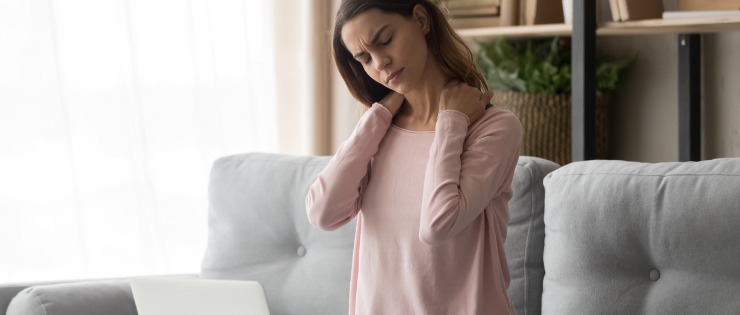
Possible Mental Benefits of Turning Off Social Media
A break can allow you to tell if you feel less anxious, depressed or happy compared to when you’re spending time on social media.
Is social media addicting?
Technology addiction isn’t formally recognised, but many believe its overuse represents a behavioural addiction that can lead to physical, psychological and social problems. Some people feel they're addicted to social media. They recognise they suffer from FOMO on important information if they’re not on a site regularly. The chemical message from the brain called dopamine makes people feel good, which they miss when they’re away from social media.
What to do instead of social media?
Just like giving up other vices such as smoking or drinking alcohol, it’s good to have a plan on how you will fill the time you used to devote to social media. It’s when you’re not sure what to do that it’s most tempting to slip back into a bad habit. Write out a list of things you can do instead, so it’s top of mind when you feel yourself reaching for your phone.
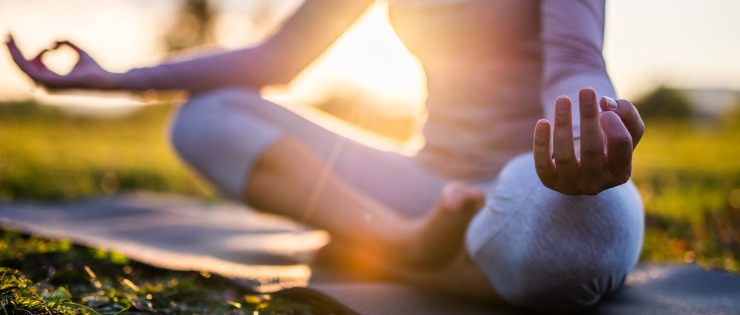
Try taking up a healthy activity like meditation to help relax and focus your mind. Getting outside for some exercise can produce the dopamine hit you were getting from social media. Give yourself a goal to work towards and remember to reward yourself when you achieve it.
What are the benefits of not using social media?
There are benefits to weigh up with not using social media. For someone suffering from poor mental health, a break from social media may be a way of improving their condition. Some people spend so much time on social media that it affects other areas of their life. They may be checking for social updates instead of working, leading to poor work performance. Giving up social media can help with concentrating on the job.
The relationship with their partner, children or parents may have suffered because of the time devoted to social media. When they give up, they may have more time to give to their friends and family and feel more rewarded for it.
Giving up social media can allow a person to feel better about themselves. Some people feel regret or disappointment that they ‘wasted’ hours per day on social media when they could do more beneficial activities.
If you think your social media use could be reduced or stopped for a while, try having a break and assess how you feel. You can then decide what limitations, if any, you will put in place on your social media use in the future. If you need professional help with taking a social media break, speak to your GP.